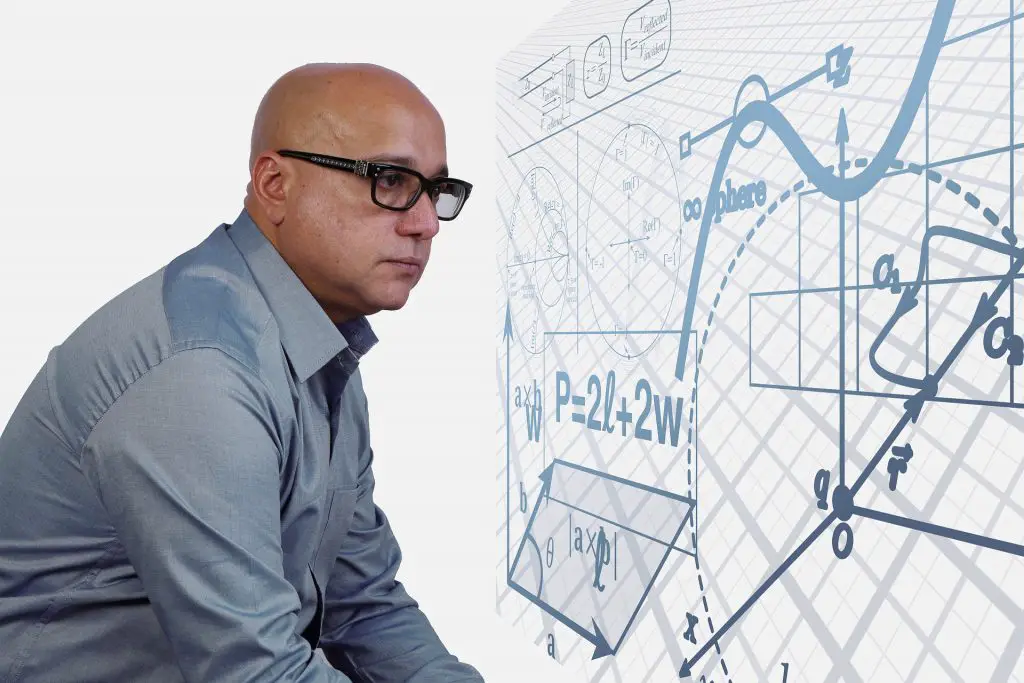We used the latest data and insights to identify the Highest Paying Physics Jobs so that you can learn and earn more.
Physics can be a hard subject to master. So, congratulations on taking on this great challenge! This article will give you some extra motivation for attacking your physics study with a sense of mission.
Trust us – The journey as well as the bright future that awaits is worth it.
We’ve assembled this list of the highest-paying physics jobs using data from the US Bureau of Labor Statistics, among other top sites.
Here are the high-paying physics jobs.
Here is a video summary based on this article
Similar Articles:
- 10 Highest Paying Nursing Jobs to Consider
- 10 Highest Paying Veterinary Jobs to Consider
- 10 Highest Paying Social Science Jobs to Consider
Table of Contents
#10. Biophysicist
How much do they get paid?
- Source: Salary.com
- Low Range: $57,804 per year
- High Range: $90,803 per year
- Median Pay: $69,709 per year

What do they do?
Biophysicists are scientists who conduct research on the physical properties of living things. They use their knowledge of physics to understand how life functions at a cellular level, and they use this information to create new treatments for diseases and illnesses.
What degrees and skills are usually required?
You should go into this job with a bachelor’s degree in biophysics or a related field. Many employers prefer to hire people with advanced degrees as well. Employers will also want to see that you have experience working in this field—either as an intern at an academic institution or as an assistant for someone who does research in biophysics.
Who’s hiring for these jobs?
Biophysicists work mostly in academia (at universities), but some also work in industry or government labs. They may also teach or perform research at these institutions, as well as at medical schools and hospitals, where they can apply their knowledge directly to patients’ care.
What is the best way to get this job?
The quickest way to get this job is through networking:
- Attend local meetings and conferences where biophysicists congregate.
- Network with them via LinkedIn or email.
- Apply for internships or fellowships related to your area of interest.
- If possible, volunteer with research labs.
What makes a biophysicist?
#9. Computer Systems Analysts
How much do they get paid?
- Source: Payscale
- Low Range: $49,000 per year
- High Range: $102,000 per year
- Median Pay: $72,277 per year

What do they do?
Computer systems analysts are responsible for creating and maintaining computer systems. They help their company’s employees understand the software they use, how it works, and how to use it more efficiently. These analysts also create new software when necessary, and they may need to fix problems that occur with existing software.
What degrees and skills are usually required?
Most computer systems analysts have at least an associate’s degree in computer science or a related field. However, many employers also want applicants who have at least two years of experience working as a computer systems analyst before applying for this job.
Who’s hiring for these jobs?
Computer systems analysts work in many different industries, including banking, healthcare, manufacturing, retail, and government.
What is the best way to get this job?
To get this job, it is important to develop excellent communication skills since you will often explain your findings to other members of your team.
You should also take advantage of any opportunity to network with others. This will make them consider you when they need someone with your skillset on their team.
What’s it like to be a computer systems analyst?
Similar Articles:
- 10 Highest Paying Political Science Jobs to Consider
- 10 Highest Paying Zoology Jobs to Consider
- 10 Highest Paying Aerospace Engineer Jobs to Consider
#8. Test Engineer
How much do they get paid?
- Source: Payscale
- Low Range: $59,000 per year
- High Range: $107,000 per year
- Median Pay: $75,610 per year

What do they do?
Test engineers are responsible for designing, building, and maintaining the test environment for a company’s products. They work closely with other engineering and quality control employees to perform tests on products to ensure they meet the quality standards before they’re released to consumers.
What degrees and skills are usually required?
Test engineers usually hold an associate degree or a bachelor’s degree in computer science or a related engineering field. Some companies will hire candidates with experience as well as education.
Who’s hiring for these jobs?
Test engineers work in various industries, including software development, telecommunications, electronics, aerospace, defense, healthcare technology, manufacturing, and transportation.
What is the best way to get this job?
The first step to getting a job as a test engineer is earning a bachelor’s degree in computer science or a related field. This will give you the most options for finding jobs after graduation.
You may consider interning at firms to gain experience in this field before applying for open positions.
What’s it like to be a test engineer?
#7. Optical Engineer
How much do they get paid?
- Source: Payscale
- Low Range: $65,000 per year
- High Range: $145,000 per year
- Median Pay: $95,473 per year

What do they do?
Optical engineers are responsible for designing, developing, and manufacturing optical systems that are used in a wide variety of applications. The field is incredibly broad and includes work on everything from microscopes to telescopes to cameras.
What degrees and skills are usually required?
Most employers prefer applicants with at least a bachelor’s degree in electrical engineering or physics. However, some companies will hire less-educated applicants if they have demonstrated proficiency in relevant skills.
Who’s hiring for these jobs?
Optical engineers work in research labs around the world as well as in industrial jobs like manufacturing products for large companies like Apple or Microsoft.
What is the best way to get this job?
You can get this job through internships or co-ops, which will give you experience working with optical engineers. It will also help you get your foot in the door with companies looking for experienced workers.
What’s it like to be an optical engineer?
Similar Articles:
- 10 Highest Paying Journalist Jobs to Consider
- 10 Highest Paying Soil Science Jobs to Consider
- 10 Highest Paying History Jobs to Consider
#6. Laser Engineer
How much do they get paid?
- Source: Glassdoor
- Low Range: $69,000 per year
- High Range: $156,000 per year
- Median Pay: $98,087 per year

What do they do?
Laser engineers design and build lasers and laser systems. They also test the lasers to ensure their performance meets the specifications set by their employers.
What degrees and skills are usually required?
The most common educational path is an undergraduate physics degree or one in electrical engineering. However, employers also prefer candidates who have completed one or two years of graduate-level optics or laser physics training.
Who’s hiring for these jobs?
Laser engineers work in various industries, including defense, aerospace, manufacturing, and healthcare.
What is the best way to get this job?
You can become a laser engineer by going through college to get your degree first before looking for employment opportunities. To get this job, you need to understand how lasers work and how they interact with other materials. You also need to have excellent math skills since most of your work will involve using formulas to figure out the most optimal way to use your laser system.
What’s it like to be a laser engineer?
#5. Physics Professor
How much do they get paid?
- Source: Salary.com
- Low Range: $57,585 per year
- High Range: $243,592 per year
- Median Pay: $111,596 per year

What do they do?
Physics professors teach the next generation of scientists and engineers. They are responsible for conducting research and sharing their knowledge with students to increase their understanding of how the universe works.
What degrees and skills are usually required?
You’ll need at least a master’s degree in physics or another related field, but you may also want to pursue a doctorate (Ph.D.) if possible.
Who’s hiring for these jobs?
Physics professors work in colleges, universities, and private schools.
What is the best way to get this job?
You need a strong educational background in physics and good communication skills to qualify for this job.
Once you’ve graduated with your Ph.D., there are several ways to get a job as a professor. You can look for jobs on job boards or through other online resources. You may also contact the department directly and ask for advice about how best to apply for their openings.
If possible, try to connect with professors at the school before applying so that they know who you are and what kind of candidate they’d like to hire.
How do you become a physics professor?
#4. Solar Physicist
How much do they get paid?
- Source: Glassdoor
- Low Range: $83,000 per year
- High Range: $175,000 per year
- Median Pay: $114,790 per year

What do they do?
Solar physicists study how the sun works—its magnetic fields, heat, and light flow—and how those things affect us here on Earth.
They use their knowledge to predict those effects so that we can prepare for them in advance.
What degrees and skills are usually required?
Most employers want at least an undergraduate physics degree (or another related field). If you’re going into academia or research, an advanced degree may be required as well.
Who’s hiring for these jobs?
Solar physicists can find jobs at universities or research labs around the country. Some work for government agencies. Others go into business consulting or journalism.
What is the best way to get this job?
If you want to become a solar physicist, start by earning a bachelor’s degree in physics or astronomy from an accredited university. Then continue your education by getting a master’s degree or Ph.D. in physics or astronomy from an accredited university or college.
What’s it like to be a solar physicist?
#3. Computational Physicist
How much do they get paid?
- Source: Glassdoor
- Low Range: $88,000 per year
- High Range: $172,000 per year
- Median Pay: $118,984 per year

What do they do?
Computational physics is a relatively new field that combines physics with computer science. It focuses on creating models that simulate real-world environments, which can then be used to predict future outcomes and make decisions based on what’s likely to happen.
As a computational physicist, you’ll analyze data and build simulations to predict outcomes for various industries—from banking to manufacturing. You’ll use your mathematical skills and computer science training to develop algorithms that are useful in real-life situations.
What degrees and skills are usually required?
A bachelor’s degree in physics or mathematics is generally necessary for this job, although some employers may require a master’s degree. Most employers prefer candidates with a Ph.D.
Who’s hiring for these jobs?
Computational physicists work in many industries, including healthcare and medicine, education, insurance, manufacturing, architecture, government agencies, and more.
What is the best way to get this job?
Once you have your bachelors degree, employers will want to know that you have experience working with large data sets—and they’ll want proof. This means having completed an internship or co-op program during college will set you apart from other applicants. You may also start out with entry-level jobs in this field.
What’s it like to be a computational physicist?
Similar Articles:
- 10 Highest Paying Criminal Justice Jobs to Consider
- 10 Highest Paying Management Jobs
- 10 Highest Paying Commerce Jobs to Consider
#2. Physics Research Scientist
How much do they get paid?
- Source: Glassdoor
- Low Range: $96,000 per year
- High Range: $198,000 per year
- Median Pay: $132,925 per year

What do they do?
Physics research scientists conduct research in physics. They use the results of that research to improve existing technologies or create new ones. These physicists may also be responsible for teaching classes at a university or working with students as a professor.
What degrees and skills are usually required?
Physics research scientists typically have a Ph.D. in physics or a related field. Employers usually prefer candidates who have had some experience working in the field before applying for this position.
Who’s hiring for these jobs?
These research scientists work at universities, government agencies, and private companies. Some also work as consultants.
What is the best way to get this job?
The fastest way to get this job is to get an advanced physics degree and gain experience through internships or volunteer work.
What’s it like to be a research scientist?
#1. Medical Physicist
How much do they get paid?
- Source: Payscale
- Low Range: $83,000 per year
- High Range: $217,000 per year
- Median Pay: $153,423 per year

What do they do?
These medical scientists work in hospitals and clinics to ensure that the equipment used to diagnose and treat patients is functioning properly. Their jobs can be divided into two main categories: clinical and research. Clinical medical physicists work with patients directly, while research-focused medical physicists are more involved in the development of new technology.
What degrees and skills are usually required?
Because of the complexity of their work, employers prefer to hire candidates who have at least a Ph.D. in physics or engineering. However, it’s not impossible to get this job with just a bachelor’s degree in physics or engineering if you’ve worked in the field for several years already.
Who’s hiring for these jobs?
Medical physicists work primarily in hospitals and clinics, although some find jobs in research labs or private industry.
What is the best way to get this job?
A good way to get started is by working on research projects at your university or hospital. This will give you valuable experience working with patients and physicians while also letting you build up an impressive resume.
What’s it like to be a medical physicist?
Similar Articles:
- 10 Highest Paying IT Jobs to Consider
- 10 Highest Paying Programming Jobs to Consider
- 10 Highest Paying Forensic Science Jobs to Consider
Conclusion
Physics graduates who choose a specialty that aligns with their interests, strengths, and work environment goals can move into the highest-paying physics careers. While some degree areas naturally lead to higher starting salaries, many physics majors can find great career success by considering where they will be happiest in their day-to-day life as well.
Physics is a very broad field that encompasses many different subfields. With that said, it’s clear that physics majors can find plenty of job opportunities in several areas, including engineering and computer science.
There you have it!—the highest-paying physics jobs available for you today.


